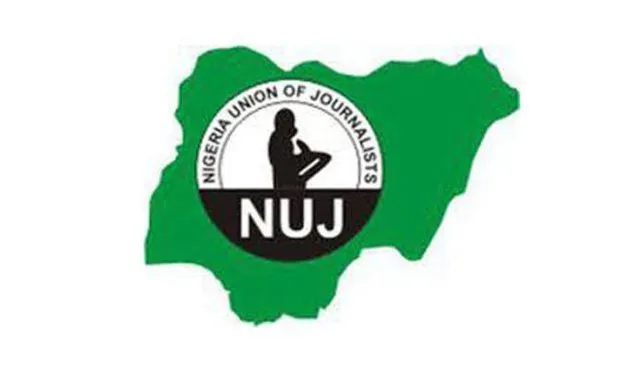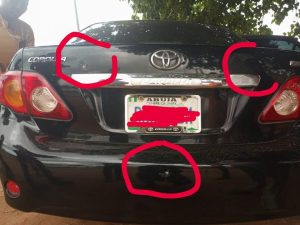
#EndBadGovernanceInNigeria: NUJ CONDEMNS HARASSMENT OF JOURNALISTS, SAYS INTIMIDATION MUST STOP

The Nigeria Union of Journalists, NUJ, has condemned the harassment and intimidation of journalists covering the #EndBadGovernanceInNigeria nationwide protests.
According to the union, the acts were carried out by both “state and non-state actors.”
This was disclosed in a statement made available on Sunday, August 4, 2024, by the NUJ’s National Secretary, Achike Chude.
The statement assured that despite these condemnable acts, “journalists will neither be cowed nor deterred from carrying out their responsibilities of engaging with society to inform, enlighten, and educate citizens to promote the public good.”
The statement read in part, “Following the series of protests that rocked many parts of the country on Thursday, August 1, and Friday, August 2, 2024, Nigerian journalists went out in their numbers as required by the demands of the profession to cover the events.
“Unfortunately, the hydra-headed monster of journalist intimidation, harassment, and the seizure of both official and personal assets of members of the press reared its ugly head once more. These acts were carried out by both state and non-state actors.
“This sordid and unacceptable state of affairs, especially those perpetrated by state actors, is occurring despite various conscious efforts by the NUJ to engage government officials and security forces to address these anti-democratic behaviours by those responsible for maintaining law and order.”
Among the recorded incidents of journalists’ intimidation and harassment across the country, the NUJ lamented that in Lagos State, a journalist with News Central Television, Bernard Akede, was “interrupted and barred from conducting live interviews by police officers and LCC officials.”
In Calabar, Cross River State, “hoodlums attacked journalists, leaving Nigerian Tribune reporter Joseph Abasi-Abasi with severe injuries. The assailants targeted a bus belonging to the NUJ that was carrying food supplies to the Ernest Etim Press Centre.”
“In Abuja, Daily Independent photojournalist Jide Oyekunle was unlawfully arrested and had his mobile phone confiscated by police officers while covering protests. He was only released following a spontaneous protest by other journalists.”
“In Abuja, Olukayode Jayeola, a photojournalist with The PUNCH Newspaper, was arrested by police while covering the protest at Eagle Square. His camera, phones, including an M11, and other personal belongings were confiscated by security operatives.”
The statement also added that another journalist with TVC News in Kano State, Ibrahim Isah, was “physically attacked by armed hoodlums, sustaining hand injuries.”
“Mary Adeboye, a journalist with News Central Television, was exposed to teargas fired by police officers while reporting on the protest in the Federal Capital Territory.
Also, Yakubu Mohammed of Premium Times was attacked and injured by police officers who allegedly hit him with the butt of their guns and their batons,” causing injuries to his head while covering the protest.
Mohammed’s cameras were also destroyed by the police officers.
Another journalist, Jonathan Ugbal of Cross River Watch, was “arrested, beaten, and detained by police in Calabar before being released.”
The statement added that “in Delta State, some journalists came under attack by counter-protesters, allegedly supporting the government, while covering the demonstration. Prince Amour Udemude, an investigative journalist, Matthew Ochei of PUNCH Newspaper, Monday Osayande of Guardian Newspaper, and Lucy, a reporter with Pointer, were assaulted and had their equipment destroyed.”
Furthermore, nine staff members of Radio Ndarason Internationale were “arrested at RNI offices in Maiduguri while reporting on the protests,” among others.
The union called for a thorough investigation into these incidents while it continues to compile “a list of official and personal assets of journalists that were either lost, seized, or damaged to determine their value.”
“We expect nothing less than a public apology from the institutions responsible, as well as the replacement of the lost or damaged assets of the journalists.”
“Nigeria is supposed to be a country of law and order. We expect no less in terms of professional conduct from officials who are maintained with state resources,” the statement concluded.
The scheduled 10-day protests, planned to be held from August 1-10, 2024, seek to address the high cost of governance, the high cost of living for citizens, and rising food prices, among other issues.
![]()
